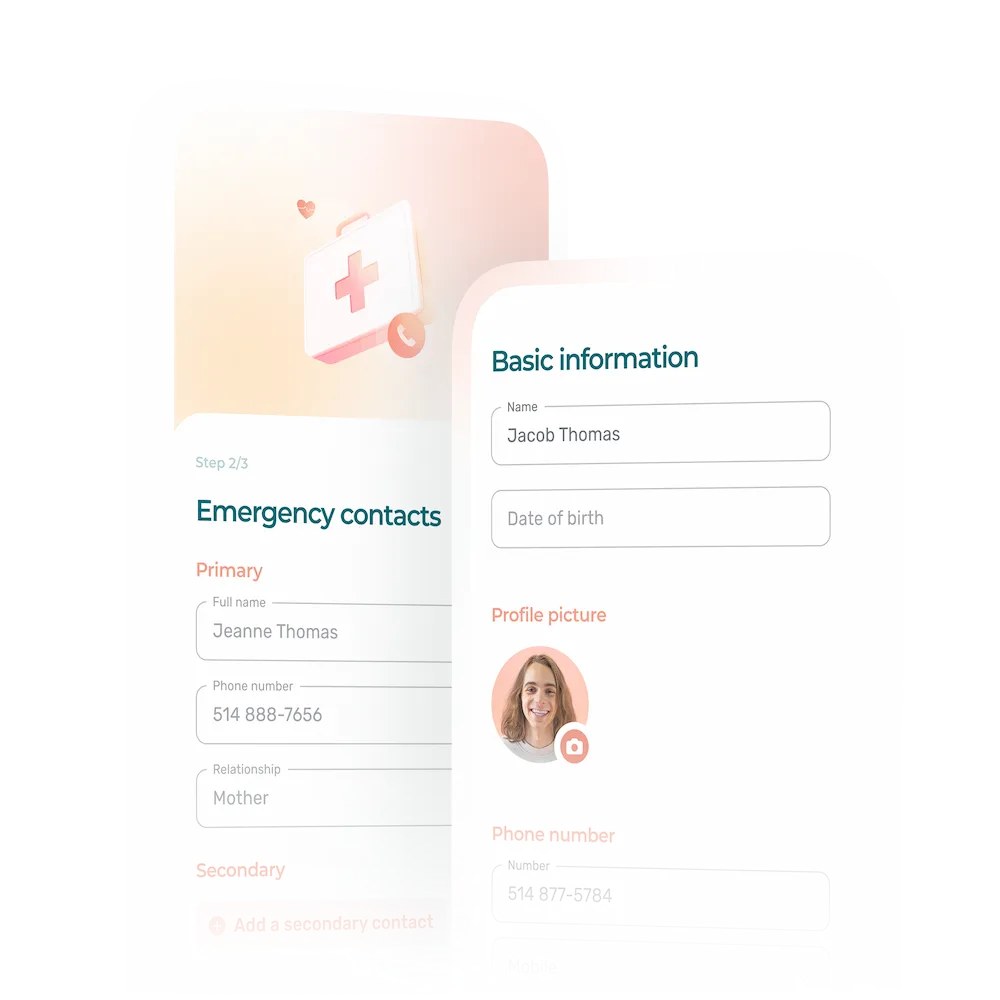When an employee leaves, it can be a source of concern for their team—regardless of the reason for their departure.
Managers need to be diplomatic when breaking the news to the rest of their team, especially if the employee held an important position or if the departure was unexpected.
While some departures are easier to announce than others, they always require some planning and preparation on the part of the manager.
To avoid worrying or upsetting your team members, there are several golden rules to follow.
So an Employee Is Leaving You… Don’t Panic!
The announcement of an employee’s departure is usually made by their direct superior or manager. The departure can take many different forms depending on the situation:
- Dismissal resulting from the employee’s poor performance
- Retirement after 20 years at the company
- Temporary departure for parental leave
- Dismissal for economic reasons
- Sick leave due to burnout
- Work interruption after a surgery
- Resignation because the employee is moving
- Resignation to go work for another employer
- End of employment contract (fixed-term or permanent)
Before sharing the news with the rest of your employees, you need to notify the management team and take care of the paperwork.
Also, take the time to ask a few questions to understand why the employee has decided to leave.
Document the grounds for their leaving in the employee’s file. For example, some scheduling software lets you leave notes in your employees’ profiles before archiving them. This way, you can go back and consult them if needed.
💡 Conducting an exit interview can be an outstanding way to collect key insights into the employee experience at your organization.
The 8 Blunders to Avoid
Your employee’s resignation must be announced carefully to avoid harming the employee experience, and to maintain your bond of trust with your team members and preserve their loyalty to the organization.
Here are the 8 blunders to avoid.
1. Delaying the Announcement
Don’t wait too long before announcing an employee’s departure to the rest of the team—the longer you wait, the more likely rumours are to spread. The departing employee may well decide to discuss their resignation with their co-workers even if you’ve asked them not to.
So, put your other work on hold and make it a priority to address the departure. The sooner you break the news, the sooner you can get to work on the transition.
2. Announcing the Resignation in a Blanket Email
Announcing an employee’s resignation in a simple blanket email can seem very cold and unempathetic. It’s probably not the best way to go about things.
Imagine learning that the company you work for has laid off dozens of employees for economic reasons… in a blanket email sent to the company at large. You would almost certainly have questions and concerns. This should be avoided at all costs.
It is usually advisable to announce an employee’s departure to the rest of the team in person. This will allow you to answer questions in real time and gauge your employees’ reaction, especially in the case of an unplanned departure.
Of course, for other teams that have had very little contact with the employee, a resignation email may be sufficient.
3. Failing to Prepare
You should always be prepared to make this type of announcement so that you won’t be blindsided by the questions you will have to answer. Your employees might ask:
- Why does the employee want to leave?
- Is it because of our new management practices?
- Did you try to retain the employee?
- Where will the employee now be working?
- Why wasn’t their contract renewed?
- What were the reasons that made them consider resigning?
- Will a replacement be hired? If so, how long will it take?
- When will the employee be coming back from parental leave (or time off work)?
- Why were they fired?
- Are more layoffs planned?
You should be able to answer these questions, in part if not in full, while making sure to respect the privacy of the departing employee. Give clear, honest answers.
If this is the first time you’ve had to make such an announcement or you’re unsure how to do it, ask colleagues or the HR department for some guidance. It’s best to be prepared rather than floundering and ending up undermining morale or alarming the rest of the team.
4. Keeping It as Vague as Possible
In organizations of all kinds, news always has a way of coming out. So, it’s to your advantage to be transparent with your team members. Don’t try to suppress the truth about why an employee is leaving, especially if the reasons are less than positive.
You can even own up to a mistake if necessary and explain to your employees how you’re going to make sure that the situation won’t happen again. Your openness and candour are sure to inspire trust in the rest of the team.
5. Getting Carried Away by Your Emotions
Announcing an employee’s departure can be pretty emotional. Whether it’s the retirement of a long-time employee or the sudden departure of a disgruntled worker, you should try to remain neutral when sharing the news.
To be clear, staying neutral does not mean bottling up your emotions, but rather expressing them reasonably, without unnecessary drama. Tap into your emotional intelligence.
The key is to put aside your anger and bitterness so as not to fuel an unhealthy climate. Be mindful of your non-verbal communication as well, since it may say more about your feelings than you’d like.
6. Downplaying Your Employees’ Reaction
The news might affect other employees more than you might have imagined. It isn’t unusual to notice a drop in motivation or productivity in employees who have lost a valued colleague.
So, be sensitive and empathetic. Take the time to listen to your employees and take their opinions into account so that they don’t feel betrayed by the organization.
Don’t hesitate to send out a satisfaction questionnaire a few weeks after the announcement in order to measure your employees’ motivation levels and implement solutions if necessary. This way, you’ll be able to maintain team cohesion and avoid others deciding to leave as well.
7. Failing to Plan the Transition
The time has come to explain what the next steps will be. This way, your team will know what to expect.
Are you going to hire a replacement? How long do you think this will take? What is the employee’s resignation date? Who will have to do the work until a new employee is trained? Will the resignation result in any schedule changes?
Take the time to discuss the transition with other managers or HR managers before sharing the news with the rest of the team. Whether sudden or long-expected, an employee’s departure is a significant event and requires planning on your part.
8. Refraining From Acknowledging Resignations
Regardless of the reason for an employee’s resignation (except perhaps in the case of termination for gross misconduct), you should at least thank them for their work with your organization.
You can simply tell them in person when they tell you that they’re leaving. But don’t hesitate to go the extra mile if the situation calls for it.
For example, if one of your employees is retiring, organize a lunch or dinner to celebrate this milestone with them.
When an employee leaves you for another employer, your relationship doesn’t have to end abruptly. Take the time to acknowledge their contribution to the company and thank them for their work.
Employee offboarding is as important as employee onboarding.
Offboarding will help solidify your employer brand and make sure that your former employees remain positive ambassadors for your organization. Plus, you never know… maybe one day they’ll come back to work for you!
I have fond memories of my former employers who were always understanding and decided to support and encourage me in my plans rather than bitterly holding my resignation against me. And today I often recommend these employers to my friends and family since my experience with them was so positive.
Golden Rules to Keep In Mind
- Announce the employee’s departure without delay
- Prepare for the questions that will come up
- Ideally, share the news in person
- Be transparent about the reasons for their leaving
- Don’t let your emotions get the better of you
- Remain empathetic and understanding of the rest of the team members
- Plan the transition
- Thank the employee for their work










